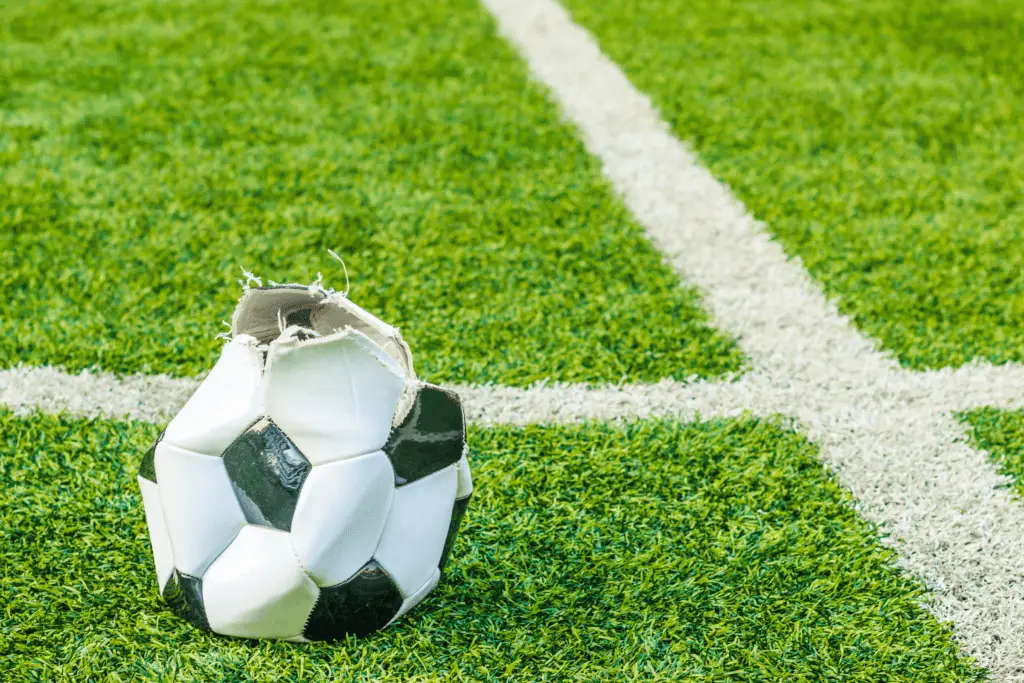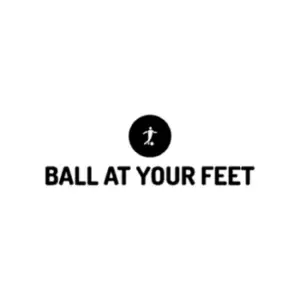Taking proper care of your soccer ball will make it last longer. Most of the various dos and dont’s of soccer ball care are pretty straightforward. How can you take good care of your soccer ball and keep it in tip-top condition?
To take care of your soccer ball, store it indoors, deflate it for prolonged storage, use it on the correct surface, don’t stand or sit on it, don’t kick it against a wall, and keep it away from pets. Other important tips include gently inflating and filling it with enough air for playing.
Let’s discuss how to care for your soccer ball and why these tips will help you keep yours in good condition.
Table of Contents
11 Soccer Ball Care Tips to Keep Yours in Good Condition
Soccer balls and other equipment can be expensive. We want to make sure that our equipment lasts as long as possible.
Related: How to Fix an Egg-Shaped Soccer Ball in 5 Easy Steps
Here are 11 tips to keep your soccer ball in good condition.
Store your soccer ball indoors
One of the easiest ways to care for your soccer ball is to store it inside, away from harmful weather conditions. Rain and moisture are bad for your soccer ball; the water can eat away and ruin the material. Don’t keep your ball outside for a long period of time.
When you’re not using your ball, keep it in your soccer bag or a safe space in your home. Don’t set heavy objects on top of it, or you risk warping the shape of the ball.
Deflate it for long-term storage
If you’re putting your ball away for an extended period, deflate it when you store it (or if you’re packing for a trip). This takes the air pressure off the ball’s material, helping it last longer. You don’t need to get every bit of air out before you put it away, but you should remove enough to where it’s noticeable.
To deflate the ball, unscrew the needle of your ball pump. Then, locate the ball’s valve and insert the separated needle. You will immediately hear or feel air escaping from the valve. Keep the needle inserted until the ball is deflated.
Only use it on grass or turf
In general, all soccer fields are safe for your ball. One way to make your soccer ball last longer is to use it on grass or turf fields. Avoid concrete, asphalt, or rough and rigid surfaces when playing with your ball. Such surfaces can tear the material and ruin your ball.
Even indoor soccer floors are abrasive toward outdoor balls. Use an old ball or a futsal ball when you’re playing inside on a hard surface. Make sure to wear the proper footwear, too!
Don’t use cleaning products to clean it
It can be tempting to clean off any harsh scratches on your ball. Using a small amount of water and a microfiber or paper towel is fine, but don’t use cleaning products to clean your soccer ball. These products are made of harsh chemicals that can damage the outer material of the ball.
Soccer balls are designed to endure harsh impacts and some scratches. If you need to clean mud or a small scratch off your ball, use water and dry it off when you’re done.
Don’t stand or sit on your ball
One of the worst things you can do to your soccer ball is sit or stand on it. The pressure from standing or sitting on it warps the shape of your ball. If your soccer ball becomes misshapen, it won’t work correctly; its flight path will be skewed, and your accuracy when using that ball will worsen.
Soccer balls are supposed to be perfectly spherical. Standing or sitting on it can cause it to become oval or egg-shaped and compromise its flight path.
Don’t kick it against a wall
Playing wall ball with your soccer ball is a great way to warm up and improve your first touch and accuracy. However, it’s also a great way to ruin your ball. Don’t kick your soccer ball against a wall. The impact on the wall will tear the outer material and possibly alter the shape of the ball.
If you plan on using a wall during a training session, grab an old ball or buy a cheap spare if possible.
Keep it away from your pets
Pets think everything is a toy, including soccer balls. Keep your ball away from your pet to prevent claw marks, teeth marks, and holes. Store your ball in a separate room or another place your pets can’t access, especially if they’re often home alone. This also protects them, as they could swallow some of the material.
Properly insert the pump’s needle into the valve
This might not seem like a huge deal, but using a pump incorrectly can cause serious damage to your soccer ball. Incorrectly inserting the pump’s needle into the valve of the ball could cause the needle to break and get stuck in the ball.
To properly fill your ball with air, moisten the pump’s needle before inserting it into the valve. The valves are made of butyl or silicon and can be torn if you don’t add lubricant to the needle. Silicone oil, or even saliva, will do the trick.
Don’t inflate it too quickly
Don’t inflate your ball too quickly. Otherwise, you risk warping the shape of the ball’s bladder (the part filled with air), resulting in an egg or oval-shaped ball. Inflating it too quickly could also cause you to add too much air, making the ball too hard. Too much air inside could cause the ball to burst.
Inflate it with enough air for playing
Soccer balls should be filled with an adequate amount of air. Not everyone has a pressure gauge lying around, so a simple squeeze test suffices. FIFA’s standard PSI for size five soccer balls is 8.5-15.6. The same PSI range is recommended for all other-sized soccer balls.
Inflate your ball with enough air so that it moves how it’s supposed to. Don’t fill it with too much air because it could damage the ball and injure anyone who kicks or gets hit by it.

Buy a higher-end ball if you can
This tip isn’t completely necessary, but it will make your ball last longer. High-quality soccer balls are built with more robust, stronger materials. They’re affected less by the usual wear and tear from playing and can better withstand some improper care.
Lower-quality soccer balls become misshapen or deformed and tear more easily. However, all soccer balls can last longer and stay in good condition with the proper care.
